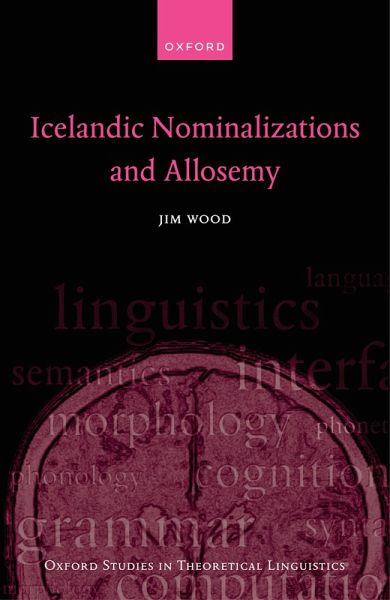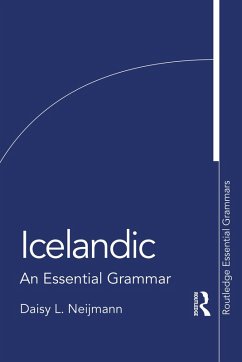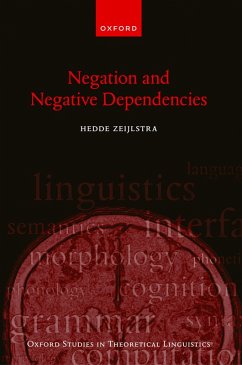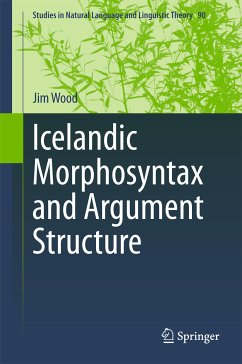
Icelandic Nominalizations and Allosemy (eBook, PDF)
Versandkostenfrei!
Sofort per Download lieferbar
56,95 €
inkl. MwSt.
Weitere Ausgaben:

PAYBACK Punkte
28 °P sammeln!
This book brings a basic yet detailed description of Icelandic nominalizations to bear on the general theoretical and architectural issues that nominalizations have raised since the earliest work in generative syntax. While nominalization has long been central to theories of argument structure, and Icelandic has been an important language for the study of argument structure and syntax, Icelandic has not been brought into the general body of theoretical work on nominalization. In this work, Jim Wood shows that Icelandic-specific issues in the analysis of derived nominals have broad implications...
This book brings a basic yet detailed description of Icelandic nominalizations to bear on the general theoretical and architectural issues that nominalizations have raised since the earliest work in generative syntax. While nominalization has long been central to theories of argument structure, and Icelandic has been an important language for the study of argument structure and syntax, Icelandic has not been brought into the general body of theoretical work on nominalization. In this work, Jim Wood shows that Icelandic-specific issues in the analysis of derived nominals have broad implications that go beyond the study of that one language. In particular, Icelandic provides special evidence that Complex Event Nominals (CENs), which seem to inherit their argument structure from the underlying verbs, can be formed without nominalizing a full verb phrase. This conclusion is at odds with prominent theories of nominalization that claim that CENs have the properties that they have precisely because they involve the nominalization of full verb phrases. The book develops a theory of allosemy within the framework of Distributed Morphology, showing how one single syntactic structure can get distinct semantic interpretations corresponding to the range of readings that are available to derived nominals. The resulting proposal demonstrates how the study of Icelandic nominalizations can both further our understanding of argument structure and shed new light on the syntax-semantics interface.
Dieser Download kann aus rechtlichen Gründen nur mit Rechnungsadresse in A, B, BG, CY, CZ, D, DK, EW, E, FIN, F, GR, HR, H, IRL, I, LT, L, LR, M, NL, PL, P, R, S, SLO, SK ausgeliefert werden.













